#Eastern philosophy videos
Explore tagged Tumblr posts
Note
I understand that Psychopomp was born out of necessity due to the policies put in place by Unity, but alot of the story and designs for environments and characters are incredibly thought out. Were these ideas retooled from previously scrapped projects or ones you worked on before the Unity debacle (Mechana/Dreamwild)? What are your influences on some of the more esoteric concepts/mystical oddities within the stories of your games? Also, why is the moon's design one of the main unifying factors in your games? (Atleast that i know of, I only played Dashbored, Dreamwild, and Psychopomp.)
I had the idea for Psychopomp a few months before the Unity policy debacle, so when that all happened, it ended up being more of an opportunity to revisit that character and idea again (though at that point it was really just the one character design and the idea of the helmet)
For the most part, the ideas from Psychopomp weren't borrowed from my other games. There are a few however. In the 2014 early development version of DashBored (Then called "Drive") the second level was a factory run by a giant severed head. You would have to mercy kill the head to continue on. This was removed pretty quickly from the game, but I wanted to revisit it, because it made one of my highschool friends really uncomfortable. The head came back ten years later for Psychopomp, and the design is even taken from Drive.

(The old sprites. I didn't really know how to make digital art at this point)
The King of Mercury and King of all Dogs were originally from an idea for a separate video game. However, I really liked them, and I didn't want to wait to have to wait for years to be able to potentially make something with them in it, so I worked them into the story of Psychopomp.

(The original drawings that would become the King of all Dogs and King of Mercury. The King of All Dogs inner face here is inspired by traditional Haida art. This influence was dropped for Psychopomp because it didn't fit the grimy artstyle, but I'd like to bring it back in the future.)
I grew up in a household surrounded by a lot of spiritualism and various eastern philosophies. A lot of my youth was spent in spiritual shops and various shrines of different denominations. I ended up with a lot of esoteric concepts in my head and came to really appreciate a lot of the various spiritual aesthetics of the world. It's hard to come to terms with a world that's brimming with so many concepts, many of which contradict and attack each other, and that spiritual anxiety makes up a lot of my feelings in Psychopomp.
As for the moon, all I can say is: Note who it appears to, and when and where it appears. The moon is watching.
Thanks for the ask! This is a really great question! I hope you enjoyed the games, and I hope you'll enjoy what I have in store for the future!
137 notes
·
View notes
Text
Joke Eastern Spiritual Arguments - Fireworks Video
Q: Why Eastern Spiritualists Don't Argue? A: Because arguing is a form of duality - Dr Devang H Dattani
Good Morning
See Video For Fireworks
Happy Diwali / Deepavali and Prosperous New Year
Quote / Poem / Poetry / Quotes Of
Bhagwan Sri Sri Sri
Doctor Devang H Dattani
Infinite SriSriSri DDD
Posted By TheBlissCity DDD Team
See The Media Photo Video For
Quoteoftheday
God Morning
#Diwali , #firework , #bliss , #TheBlissCity , #philosophy , #mindfulness , #DrDevangHDattani , #nature , #awareness , #InfiniteSriSriSriDDD , #quotes , #life , #art , #zen , #awakening , #quote , #spiritual , #photography , #Video , #meditation , #psychology , #poem , #poetry , #motivation , #inspiration , #quoteoftheday , #love , #words , #thoughts , #joy , #pun , #enlightenment , #health , #mental health , #consciousness , #good , #god , #landscape , #life , #video , #nirvana , #tantra , #yoga , #halloween , #light , #photooftheday , #music , #fireworks , #show , #joke , #humor , #lake , #argument , #eastern , #duality , #Diwali , #deepavali , #new year
#halloween#artists on tumblr#diwali#boop#photographers on tumblr#deepavali#epic the musical#fireworks#TheBlissCity#philosophy#mindfulness#DrDevangHDattani#naturecore#illustration#awareness#InfiniteSriSriSriDDD#quotes#art#zen#awakening#spirituality#photography#video#meditation#psychology#poetry#motivation#inspiration#quoteoftheday#new year
55 notes
·
View notes
Text

A MASTERLIST OF ALL THE BOOKS I COULD FIND IN TIM'S BOOKSHELVES
As someone who basically sees Tim Laughlin as my own version of Jesus Christ (I kind of wish I was lying but I have a 'beyond measure' tattoo branding my skin so perhaps I'm entirely serious), I simply needed to know what was on those shelves of his. And this was a hard task to achieve, believe me... but I got much farther than I initially thought I would.
(I've got so much to say about all of these books and how they might string together to create a deeper understanding of Tim as a character but I won't go into it here... maybe in a future post or video essay, who knows).
If you wish to help a girl out and attempt to figure out any of the other books I simply can not crack no matter how I look at the screenshots and mess with the adjustments... here's a folder full of 2k sized screenshots of those shelves.
Before I list the books one by one, I want to make a couple observations:
1) Almost all of the books I was able to pinpoint are non-fiction. The ones that aren't are children's books.
2) Topically, we see an interdisciplinary interest in:
History: from a book on a king in 4BC, to a survey of landholding in England in the 11th century.
Somewhat current historical events: books on World War I and II.
Western Philosophers: specially from the 16th to the 18th century.
Aesthetics: there's at least 2 books on the subject matter, but I couldn't find the second one, sadly.
Spirituality: not only christian/catholic; some of these books touch on Eastern practices such as Buddhism and Hinduism.
Fairy tales / children's books.
Psychology: specially in regards to mysticism and sexuality.
Science and scientific discovery/research.
3) A lot of the history, current events, and spirituality books are autobiographies/memoirs.
4) A lot of books (specially those on sciences and philosophy) tend to be more so anthologies or overviews on a subject matter rather than a book written by one specific author on one very concrete topic.
Overall, this all reflects very well an idea Jonathan Bailey himself expressed in a brilliant interview you can watch here if you haven't yet:
"Tim has buddhist flags in his 1980s flat in San Francisco, he has crystals, he is someone who is always seeking other ways to understand human experience. Which is probably tiring for him. Throughout the decades, he sort of appears as completely different people. At the crux of it there's this extreme grinding, contrasting, aggressive duality between feeling lovable and not feeling lovable. There's such shame in Tim. But it's the push and the pull which keeps him alive.”
This desire to understand human psychology, spirituality, and the ways of the universe through as many diverse lenses as possible, as well as a predilection for non-fiction, expresses very much to me that insatiable thirst for truth that defines his character so strongly.
OKAY, THAT BEING SAID. Here's the list in chronological order of publication.
PS. if you decided to click on any of the following titles it'd definitely not take you to a google drive link of the pdf file where you could download and read these books for yourself. Because that would be illegal and wrong.

Journeys through Bookland by Charles H. Sylvester (1901?) (1922 Edition)
I don't know which specific volume he owns, sorry, I tried my best but the number is not discernible (hell, the title barely is). If anyone wants the download link to these hmu because I'm not about to individually download all 10 right now.
10 volumes of poems, myths, Bible stories, fairy tales, and excerpts from children's novels, as well as a guide to the series. It has been lauded as ‘a new and original plan for reading, applied to the world’s best literature for children.’

Pilgrimage by Graham Seton Hutchison (1936)
This book provides a view of the battlefields of WW I through the eyes of the average fighting man.
One curious thing about this book is that it's author, a British First World War army officer and military theorist, went on to become a fascist activist later in his life. Straight from Wikipedia:
"Seton Hutchison became a celebrated figure in military circles for his tactical innovations during the First World War but would later become associated with a series of fringe fascist movements which failed to capture much support even by the standards of the far right in Britain in the interbellum period." He made a contribution to First World War fiction with his espionage novel, The W Plan."
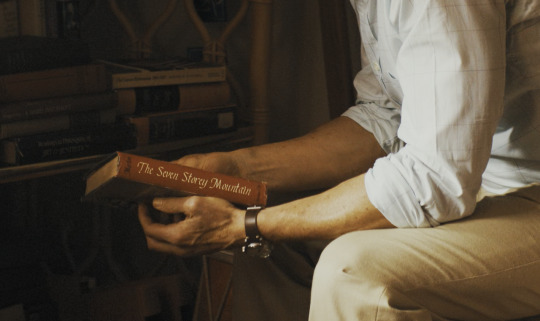
The Seven Storey Mountain by Thomas Merton (1948)
The Seven Storey Mountain tells of the growing restlessness of a brilliant and passionate young man, who at the age of twenty-six, takes vows in one of the most demanding Catholic orders—the Trappist monks. At the Abbey of Gethsemani, "the four walls of my new freedom," Thomas Merton struggles to withdraw from the world, but only after he has fully immersed himself in it. At the abbey, he wrote this extraordinary testament, a unique spiritual autobiography that has been recognized as one of the most influential religious works of our time. Translated into more than twenty languages, it has touched millions of lives.
This book requires no introduction. It's the one he keeps the Fire Island's postcard in and the one we see him re-reading in episode 8 after Hawk brings it to the hospital with him at the end of episode 7.
Just a little detail I noticed:
Apparently he liked the book so much he visited Gethsemani, which was the home of its author all the way up till 1968.

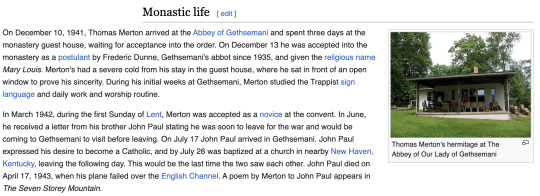
For all we know, he might have even met its author!

Sexual Behavior in the Human Male by Alfred Charles Kinsey, Wardell B. Pomeroy (1948)
When published in 1948 this volume encountered a storm of condemnation and acclaim. It is, however, a milestone on the path toward a scientific approach to the understanding of human sexual behavior. Dr. Alfred C. Kinsey and his fellow researchers sought to accumulate an objective body of facts regarding sex. They employed first hand interviews to gather this data. This volume is based upon histories of approximately 5,300 males which were collected during a fifteen year period. This text describes the methodology, sampling, coding, interviewing, statistical analyses, and then examines factors and sources of sexual outlet.
Yes, Charles Kinsey is indeed behind the Kinsey scale that has done so much for the LGBTQ+ community.


Their Finest Hour (1949), The Grand Alliance (1950), and Closing the Ring (1951) by Winston Churchill
Winston Churchill's six-volume history of the cataclysm that swept the world remains the definitive history of the Second World War. Lucid, dramatic, remarkable both for its breadth and sweep and for its sense of personal involvement, it is universally acknowledged as a magnificent reconstruction and is an enduring, compelling work that led to his being awarded the Nobel Prize for literature in 1953.
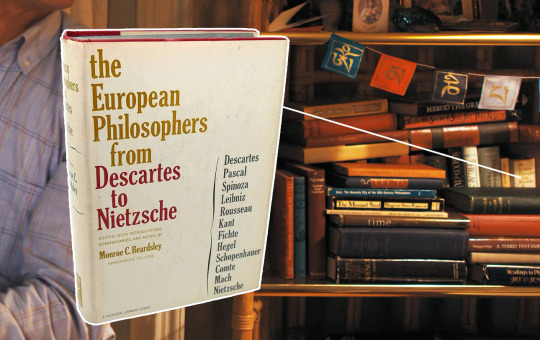
The European Philosophers from Descartes to Nietzsche by Monroe C. Beardsley (1960)
In so far as we reflect upon ourselves and our world, and what we are doing in it, says the editor of this anthology, we are all philosophers. And therefore we are very much concerned with what the twelve men represented in this book--the major philosophers on the Continent of Europe--have to say to us, to help us build our own philosophy, to think things out in our own way. For the issues that we face today are partly determined by the work of thinkers of earlier generations, and no other time is more important to the development of Western thought than is the 250-year period covered by this anthology. Monroe. C. Beardsley, Professor of Philosophy at Swarthmore College, has chosen major works, or large selections from them, by each man, with supplementary passages to amplify or clarify important points. These include: Descartes - Discourse on Method (Descartes), Thoughts (Pascal), The Nature of Evil (Spinoza), The Relation Between Soul and Body (Leibniz), The Social Construct (Rousseau), Critique of Pure Reason (Kant), The Vocation of Man (Fichte), Introducciton to the Philosophy of History (Hegel), The World as Will and Idea (Schopenhauer), A General View of Positivism (Comte), The Analysis of Sensations and the Relation of the Physical to the Psychical (Mach), Beyond Good and Evil (Nietzsche).
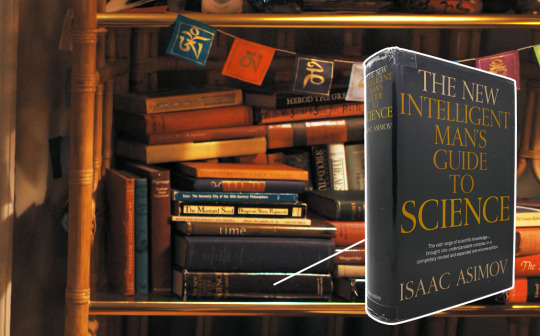
The New Intelligent Man's Guide to Science by Isaac Asimov (1965)
Asimov tells the stories behind the science: the men and women who made the important discoveries and how they did it. Ranging from Galilei, Achimedes, Newton and Einstein, he takes the most complex concepts and explains it in such a way that a first-time reader on the subject feels confident on his/her understanding. Assists today's readers in keeping abreast of all recent discoveries and advances in physics, the biological sciences, astronomy, computer technology, artificial intelligence, robotics, and other sciences.
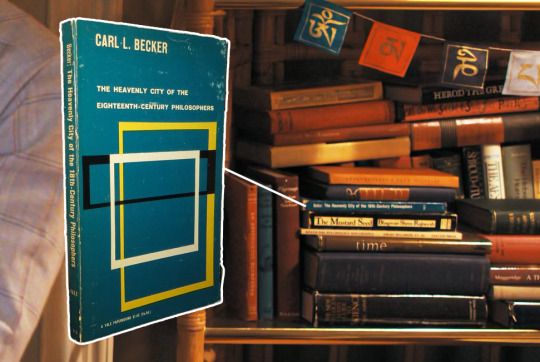
The Heavenly City of the 18th Philosophers by Carl L. Becker (1932) (1962 reprint)
Here a distinguished American historian challenges the belief that the eighteenth century was essentially modern in its temper. In crystalline prose Carl Becker demonstrates that the period commonly described as the Age of Reason was, in fact, very far from that; that Voltaire, Hume, Diderot, and Locke were living in a medieval world, and that these philosophers “demolished the Heavenly City of St. Augustine only to rebuild it with more up-to-date materials.” In a new foreword, Johnson Kent Wright looks at the book’s continuing relevance within the context of current discussion about the Enlightenment.
I find the particular choice of adding this book very curious and on brand, since it explores the idea that philosophers of the Enlightenment very much resembled religious dogma/faith in their structure and purpose. Just... A+ of the props department to not just add any kind of book on philosophy anthology.

Herod The Great by Michael Grant (1971)
The Herod of popular tradition is the tyrannical King of Judaea who ordered the Massacre of the Innocents and died a terrible death in 4 BC as the judgment of God. But this biography paints a much more complex picture of this contemporary of Mark Antony, Cleopatra, and the Emperor Augustus. Herod devoted his life to the task of keeping the Jews prosperous and racially intact. To judge by the two disastrous Jewish rebellions that occurred within a hundred and fifty years of his death -- those the Jews called the First and Second Roman Wars -- he was not, in the long run, completely successful. For forty years Herod walked the most precarious of political tightropes. For he had to be enough of a Jew to retain control of his Jewish subjects, and enough of a pro-Roman to preserve the confidence of Rome, within whose territory his kingdom fell. For more than a quarter of a century he was one of the chief bulwarks of Augustus' empire in the east. He made Judaea a large and prosperous country. He founded cities and built public works on a scale never seen before: of these, recently excavated Masada is a spectacular example. And he did all this in spite of a continuous undercurrent of protest and underground resistance. The numerous illustrations presents portraits and coins, buildings and articles of everyday use, landscapes and fortresses, and subsequent generations' interpretations of the more famous events, actual and mythical, of Herod's career.
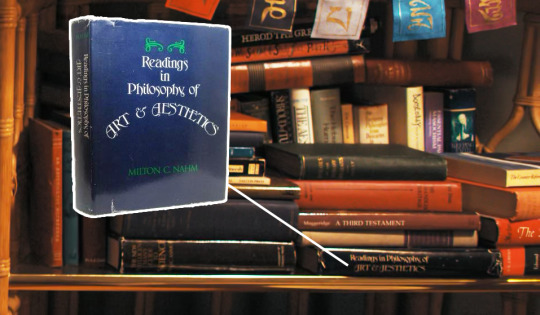
Readings in the Philosophy of Art and Aesthetics compiled by Milton Charles Nahm (1975)
A college level comprehensive anthology of essays written on the arts and the field of aesthetic philosophy.

The Mustard Seed: Discourses on the Sayings of Jesus Taken from the Gospel According to Thomas by Bhagwan Shree Rajneesh (1975)
This timely book explores the wisdom of the Gnostic Jesus, who challenges our preconceptions about the world and ourselves. Based on the Gospel of Thomas, the book recounts the missing years in Jesus’ life and his time in Egypt and India, learning from Egyptian secret societies, then Buddhist schools, then Hindu Vedanta. Each of Jesus' original sayings is the "seed" for a chapter of the book; each examines one aspect of life — birth, death, love, fear, anger, and more — counterpointed by Osho’s penetrating comments and responses to questions from his audience.
(You don't know how fulfilling it was to find some of these books and just sit there like "oh my god, yessss, he'd SO read that".)
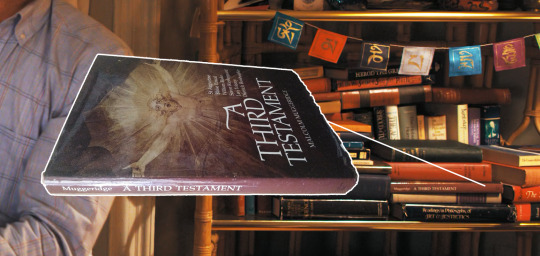
A Third Testament by Malcolm Muggeridge (1976)
A modern pilgrim explores the spiritual wanderings of Augustine, Pascal, Blake, Kierkegaard, Dostoevsky, Tolstoy, and Bonhoeffer. A Third Testament brings to life seven men whose names are familiar enough, but whose iconoclastic spiritual wanderings make for unforgettable reading. Muggeridge's concise biographies are an accessible and manageable introduction to these spiritual giants who carried on the testament to the reality of God begun in the Old and New Testaments. - St. Augustine, a headstrong young hedonist and speechwriter who turned his back on money and prestige in order to serve Christ - Blaise Pascal, a brilliant mathematician who pursued scientific knowledge but warned people against thinking they could live without God - William Blake, a magnificent artist-poet who pled passionately for the life of the spirit and warned of the blight that materialism would usher in - Soren Kierkegaard, a renegade philosopher who spent most of his life at odds with the church, and insisted that every person must find his own way to God - Fyodor Dostoevsky, a debt-ridden writer and sometime prisoner who found, in the midst of squalor and political turmoil, the still small voice of God - Leo Tolstoy, a grand old novelist who swung between idealism and depression, loneliness and fame and a duel awareness of his sinfulness and God s grace - Dietrich Bonhoeffer, a pastor whose writings and agonized involvement in a plot to kill Hitler cost him his life, but continue to inspire millions
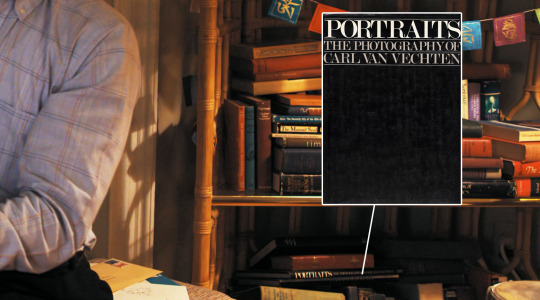
Portraits: The photography of Carl Van Vechten (1978)
Can't find a file but you can borrow it from archive.com in the link provided.
During his career as a photographer, Carl Van Vechten’s subjects, many of whom were his friends and social acquaintances, included dancers, actors, writers, artists, activists, singers, costumiers, photographers, social critics, educators, journalists, and aesthetes. [...] As a promoter of literary talent and a critic of dance, theater, and opera, Carl Van Vechten was as interested in the cultural margin as he was in the day’s most acclaimed and successful people. His diverse subjects give a sense of both Carl Van Vechten’s interests and his considerable role in defining the cultural landscape of the twentieth century; among his many sitters one finds the leading lights of the Harlem Renaissance, the premier actors and writers of the American stage, the world’s greatest opera stars and ballerinas, the most important and influential writers of the day, among many others.
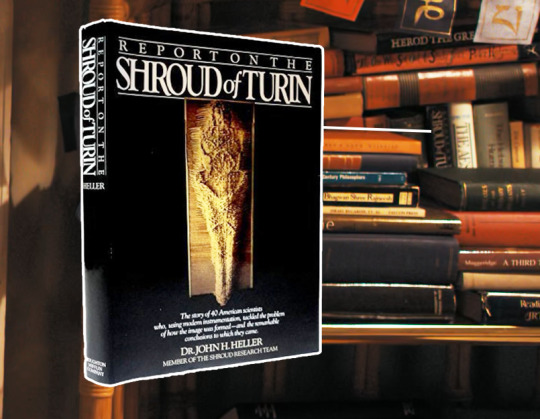
Report of the Shroud of Turin by John H Heller (1983)
Heller, while a man of science, was nevertheless a devout man (Southern Baptist). He viewed his task concerning The Shroud with great scepticism; there have been far too many hoaxes in the world of religion. The book describes in great detail the events leading up to the team's conviction that the Shroud was genuine; last - not least - being Heller and Adler's verification of "heme" (blood) and the inexplicable "burned image" of the crucified man. Although carbon dating indicates that the image is not 2000 years old and that the cloth is from the Middle Ages, there is not enough evidence to disprove Heller's assertion that the Shroud is indeed genuine.
Context for those who may not know (though I doubt it's necessary): The shroud of Turin "is a length of linen cloth that bears a faint image of the front and back of a man. It has been venerated for centuries, especially by members of the Catholic Church, as the actual burial shroud used to wrap the body of Jesus of Nazareth after his crucifixion, and upon which Jesus's bodily image is miraculously imprinted."
It is a very controversial subject matter and I definitely don't know that from going to an Opus Dei school since the day I was born till the day I graduated high school.

Mysticism, Psychology and Oedipus by Israel Regardie (1985)
I've tried my hardest but despite many Israel Regardie books being on the world wide web, I can't find a copy of this specific one.
Mysticism, Psychology and Oedipus, from the Small Gems series is one of these mysterious alchemys which Regardie and Spiegelman crafted for the serious student of mysticism. Mysticism, Psychology and Oedipus by Dr. Israel Regardie and his friend, world renowned Jungian Psychologist, J. Marvin Spiegelman, Ph.D. was created to reach the serious student at the intersecting paths of magic, mysticism and psychology. While each area of study overlaps they also maintain their own individual paths of truth. One of Regardie’s greatest gifts was his rare ability to combine these difficult and diverse subjects and make them understandable.
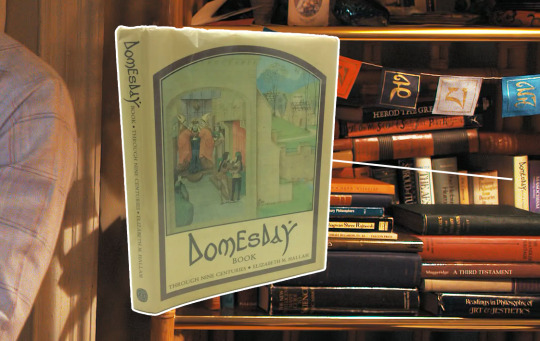
Domesday Book Through Nine Centuries by Elizabeth M. Hallam (1986)
In 1086 a great survey of landholding in England was carried out on the orders of William the Conqueror, and its results were recorded in the two volumes, which, within less than a century, were to acquire the name of Domesday, or the Book of Judgment 'because its decisions, like those of the last Judgment, are unalterable'. This detailed survey of the kingdom, unprecedented at that time in its scope, gives us an extraordinarily vivid impression of the life of the eleventh century.
The following two are a fuck up on the props department part because they were published after 1987 but we'll forgive them because they were not expecting for me to do all this to figure out the titles of these books, I'm sure:
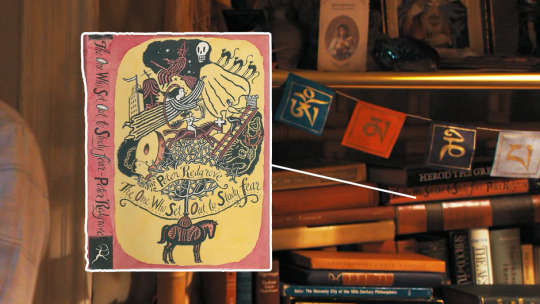
The One Who Set Out to Study Fear by Peter Redgrove (1989)
This book barely exists physically, rest assured it does not exist online... LOL.
The author of The Wise Wound presents here a re-telling of Grimm's famous fairy tales, written in a manner and spirit more suited to the present day. Each story is rooted in the original, but cast in an energetic style that is both disrespectful and humorous.
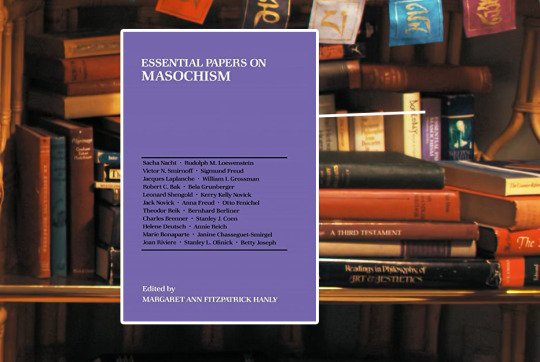
Essential Papers on Masochism by Margaret Ann Fitzpatrick Hanly (1995)
The contested psychoanalytic concept of masochism has served to open up pathways into less-explored regions of the human mind and behavior. Here, rituals of pain and sexual abusiveness prevail, and sometimes gruesome details of unconscious fantasies are constructed out of psychological pain, desperate need, and sexually excited, self- destructive violence. In this significant addition to the "Essential Papers in Psychoanalysis" series, Margaret Ann Fitzpatrick Hanly presents an anthology of the most outstanding writings in the psychoanalytic study of masochism. In bringing these essays together, Dr. Fitzpatrick Hanly expertly combines classic and contemporary theories by the most respected scholars in the field to create a varied and integrated volume. This collection features papers by S. Nacht, R. Loewenstein, Victor Smirnoff, Sigmund Freud, Jacques Laplanche, Robert Bak, Leonard Shengold, K. Novick, J. Novick, S. Coen, Margaret Brenman, Esther Menaker, S. Lorand, M. Balint, Bernhard Berliner, Charles Brenner, Helene Deutsch, Annie Reich, Marie Bonaparte, Jessica Benjamin, S.L. Olinick, Arnold Modell, Betty Joseph, and Janine Chasseguet-Smirgel.
Let's not forget another book we know has been present in his shelves at some point:

Look Homeward, Angel by Thomas Wolfe (1929)
It is Wolfe's first novel, and is considered a highly autobiographical American coming-of-age story. The character of Eugene Gant is generally believed to be a depiction of Wolfe himself. The novel briefly recounts Eugene's father's early life, but primarily covers the span of time from Eugene's birth in 1900 to his definitive departure from home at the age of 19. The setting is a fictionalization of his home town of Asheville, North Carolina, called Altamont in the novel.
And Ron Nyswaner mentioned in a podcast (might be this one? I'm not sure) that he scrapped from the script a line where Tim recommends this poem at some point:
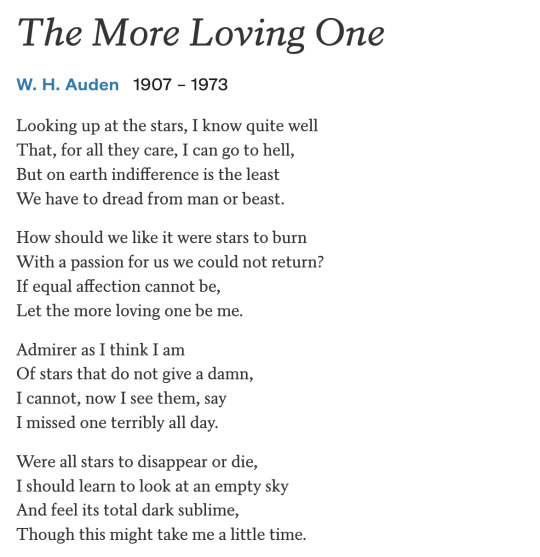
He specially emphasized the line "If equal affection cannot be, Let the more loving one be me".
And lastly, if anyone wanted to know:
His copy of the bible is the Revised Standard Version by Thomas Nelson from either 1952 or 1953.

Because why the hell not figure out what specific translation of the holy bible a fictional character was basing his beliefs on — as if the set designers cared nearly as much as I do.
#fellow travelers#fellow travelers meta#tim laughlin#fellowtravelersedit#i know it doesnt precisely fit the tag but hey.. theres a gif right there#this is such a jobless thread... but i AM jobless
143 notes
·
View notes
Note
hi!! back on my bullshit (asking for some resources if you have them and are willing to share)
would you mayhaps have some resources on non-western plurality? especially spiritual plurality but I'm curious about anything and everything
books, video essays, and other medias are very welcome too along with papers/scientific research !!
oop sorry it's a lot. also I'm 99% sure you replied to these kinds of asks multiple times I'm just not tumblr savvy (despite having been on tumblr 10+ years now)
thank you <3
@seasidewanderers
@seasidewanderers
God relatable about the "been on tumblr for 10+ years but still dont know how to use it well". I actually haven't really answered too many asks like this, at least not asking for resources and what not.
I do want to put a bit of a disclaimer about "non-western plurality" - at least from what I know from a more eastern perspective - a lot of "non-western plurality" does not actually really call itself plurality.
The concept of "plurality" in its self is a heavily western / european kind of concept, not because it only exists in those spaces, but because a lot of other spaces don't really make anything special of it so a name, community, label, etc is not exactly necessary or even particularly sensical. It's kind of like looking for "western singularity" or more accurately "western individualism". It's a bit redundant - at least in my personal perspective.
In a number of non-western cultures, the idea of having multiple selves and having that deep internal relationship isn't really anything too odd and I've heard a number of systems raised in those cultures or around cultures rooted in eastern philosophy that the people they mentioned having alters / parts / headmates to often responded POSITIVELY and casually to the concept because its generally just considered relatively normal if not a positive thing to engage with. The real question then becomes whether or not it counts as plurality or not and that's really up to the individual themselves.
It's a very western thing to really make a huge deal, spectacle and oddity out of experiencing oneself as multiple and honestly I think that can be kind of really well seen in a lot of eastern media with how much plural-adjacent themes are seen in non-DID and not-trying-to-be-DID ways. There is a large aspect of an external self and an internal self, a balancing of good and bad and opposing forces in a lot of Eastern Cultures both on religious, spiritual, philosophical, and just plain old cultural levels. Yin and Yang, Non-dualism, "Face", the general collectivist culture, Buddhism as a whole and deity yoga in particular.
Partially due to the social norms that tend to come with a highly collectivist culture and just the prominent foundational philosophies and spiritualities that are generally native to the area and the lack of a strong sense of individualism as seen in the west, it's extremely common to have strictly different modes for different situations and places as there is a strong level of conformity and respect that needs to be provided to specific locations in order to uphold the strong value of harmony that is valued heavily in collectivist cultures. People in these more collectivist cultures tend to really have to balance and make amends between these highly varied versions of themselves and so it isn't all too weird to be juggling notably different, changing and sometimes conflicting versions of selves; the version of you who is shaped to meet the communal needs and appeal / participate in sustaining harmony and the you that really fucking hates everyone here.
From talking with others who come from more eastern backgrounds, a thing we tend to kind of sigh and giggle at in the system community in terms of it being "extremely white / western" is just how overtly a lot of discussions on self, parts, and what not is EXTREMELY individualist and very much fundamentally built with a strong attachment to differentiation, defining yourself, labeling yourself, and drawing clear boxes around who you are to help understand, explore, and define your own identity. It's hard to really explain to those that are really deep into the western concept of individualism and haven't really looked into it and analyzed it, but as someone who is not exactly a fan of individualism and individualist perspectives, it's EXTREMELY loud and obvious in system communities.
And this is all a lot of preamble to really say there isn't going to really be "resources for non-western plurality" because its not anything particularly special in Eastern Cultures and cultures not built largely from a long running history of Christian / Catholic and maybe Abrahamic Roots (I don't know enough of about Islam or Judaism to say for sure but a lot of individualism does tend to stem from a cultural history and background with at least Christianity / Catholicism). Because it's not exactly special or anything particularly unique of a concept, most don't really label it or name it something or even really discuss it (also a symptom of collectivism and general Eastern cultures is not really discussing mental health or internal experiences, most of your experiences in these cultures are kept internally and dealt within yourself rather than with others) unless directly brought up by someone who DOES find it odd; ie usually a westerner or someone like me who is a first generation American from an eastern background.
So if you want "resources on non-western plurality" you won't find it looking for "plurality" as much as you would by looking into individualism vs collectivism and the cultural roots connecting to those concepts.
Of course there are also the more overt ones that talk about it, like Buddhism does because Buddhism largely serves as a way to try to teach people to find harmony within themselves AND the world to find and instill a sense of peace and serenity overall. That's added onto the fact that a lot of Buddhism is based on talking and discussing things so its an odd card out in a lot of eastern cultures in the sense they ACTIVELY like talking about how people experience themselves.
A lot of what I know comes from life experience, what I've been taught by my family and peers, and discussions with people who come from their own backgrounds; ie, most of what I know comes from anecdotal personal experience. Some I also know from some formal cultural responsivity / sensitivity / trauma informed care modules for work and during school, but most of it is honestly from personal experience and anecdotes.
Even so, I can provide some starting points to assist someone unfamiliar with the territory in investigating and learning a bit on topics relating to the normalization of plural-esque experiences in non-western cultures.
"The Concept of Self in Eastern and Western Philosophy" by Petar Radoev Dimkov is just an interesting run down of major philosophical branches of thought's perception of self
General Reading of Collectivism VS Individualism; I suggest searching up things regarding the clinical significance of understanding and acknowledging collectivism vs individualism when working with clients as well as the impact of those cultures on how one's self concept is experienced, developed and understood
General readings on the history of prominent eastern philosophies / religions (Buddhism, Taoism, Confucianism, Hinduism, Shintoism, etc) and their impacts on eastern culture / their ideas and values on the self, particularly in relation to others
And honestly? I'd suggest on actually searching and reading into the Western views of self and reading where those views and values come from as well because it will 1) likely bring up juxapositions to eastern views and 2) Its hard to truly learn and understand ANOTHER perspective if you don't first really sit and consider your OWN perspective
A lot of people think the idea that "we are one person, a unique self" is a scientific fact and in heavily white / western spaces, the way that statement is treated as fact is a very frustrating thing to see. "We are one person, a unique self" is a BELIEF that is ingrained deeply into Western Society that its treated and considered a fact despite there not really being scientific evidence to support it. (I think it also has something to do with how much "belief" is associated with religion, at least in America, rather than an opinion on something that has little scientific backing)
A lot of western psychology is also built with the assumption of a single unique self, so genuinely I think the best starting point for a white / western person to start trying to learn and understand eastern views is to first do a DEEP dive into Individualism and the Philosophy and Belief that everyone is their singular unique self.
Cause it's only when you acknowledge your own beliefs and cultural background can you actually appreciate, respect, and acknowledge another's beliefs and cultural background.
(Also just in general, learning about philosophy and following some people who just enjoy discussing philosophy can really help as well. Philosophy is the father of Science for a reason afterall. I don't know too much about him as I don't really actively follow him so he might have some bad takes or some bad history that I don't know about so take this recommendation with a grain of salt, but I really have enjoyed listening to Alex O'Connor on youtube talk about philosophy. I'm pretty sure he also engages in a lot of philosophy and religion-related debates and I think hes an Atheist? But I don't watch those so I dont know. I've only really watched his "Taking Trolley Problems Too Seriously" videos and a few one offs when I just needed something in the background while drawing, but he does know a lot of philosophical perspectives and does juggle them well enough that I honestly don't know his personal beliefs and lowkey don't really want to XD Ps: Im always hesitant to recommend youtubers cause almost all youtubers are assumed probably assholes, dicks, or Into Weird Things until proven otherwise)
#feathers speaks#sysconversation#actuallyaapi#actually aapi#philosophy#standard singular self#philosophy talk
38 notes
·
View notes
Text
EXTERNAL FICTIONAL INFLUENCES IN DUNGEON MESHI
We know that Ryoko Kui spent considerable time at the beginning of working on Dungeon Meshi doing research and planning the series. Kui constantly references real world culture, history and mythology, but she also occasionally references other fictional works and fantasy genre staples, as well as real-world philosophy.
FICTIONAL INFLUENCES: FANTASY, RPGS AND VIDEO GAMES
There are three major fictional influences on Dungeon Meshi that Kui cites: the works of J.R.R. Tolkien, Dungeons & Dragons, and the Wizardry video game series.
All of these works borrow heavily from the real world themselves (and both D&D and Wizardry borrow from Tolkien), so in many cases similarities between them and Dungeon Meshi are simply the result of Kui going back to the same ancient source material as her predecessors. Other times the ideas Kui is influenced by are things that have become so entrenched in pop culture they are ubiquitous in the fantasy genre, so though the idea may technically originate in Tolkien, D&D, or Wizardry, Kui may not be purposefully borrowing from them.
J.R.R. TOLKIEN
John Ronald Reuel Tolkien (1892-1973) was an English writer and philologist, a scholar of linguistics. He was the author of the high fantasy works The Hobbit and The Lord of the Rings. Tolkien’s work has had such a huge impact on culture that most fantasy fiction created after him borrows either intentionally or unintentionally from his work. Kui stated in a Q&A in Korea that Lord of the Rings is one of her favorite fantasy stories.
Elements in Dungeon Meshi that originate in Tolkein are: Hobbits (halflings) and how they are depicted, the idea that elves and dwarves are two distinct races in conflict with each other as well as some of their identifying traits, and the fictional metal, mithril.
DUNGEONS & DRAGONS
Dungeons & Dragons is a fantasy tabletop role-playing game originally created by Gary Gygax and Dave Arneson in 1974. The game was derived from miniature wargames, and was heavily influenced by the work of Tolkien and other Western fantasy authors such as Jack Vance. D&D was the beginning of modern role-playing games, and had a huge impact on video games and fantasy fiction in all media.
Because of this, obviously D&D came up a lot when Kui was researching the history of fantasy, so she read the rule books, replay novels, and studied some other games inspired by D&D.
The biggest single contributions D&D has made to pop culture is the concept of a dungeon as a place where characters in a story go to explore, fight enemies, find treasure, and gain power or glory, and that a group of people with different specialized skills will join each other as a “party” in order to traverse a dungeon.
The important thing to note here is that “dungeon” only exists in the title of Dungeon Meshi in Japanese, and using the word “dungeon” in the main text of the story is a change made in translation. In Japanese, the characters only refer to the dungeons as labyrinths, which is a word with a specific historic and mythological meaning, completely different from what fantasy fiction dungeons have come to mean.
So although Kui takes advantage of the word “dungeon,” and the unique connotations it’s grown due to D&D, it’s usage is completely external to the world and culture of Dungeon Meshi, it is a title for readers outside of the Dungeon Meshi world, not the characters within it.
Elements in Dungeon Meshi that originate in D&D are: the word and concept of “dungeon”, some monster concepts, such as different colored dragons having different magical/elemental abilities, and having eastern archetypes such as samurai, ninja and martial artists existing alongside western archetypes like knights and wizards. Kui mentions “dark elves”, which are something that D&D invented, however Kui states that they don’t exist in Dungeon Meshi, and that “dark elf” is just a slur non-elves use for elves they think are bad.
WIZARDRY
The computer role-playing game named Wizardry was released in 1981. Heavily influenced by Dungeons & Dragons, Wizardry in turn influenced many other games, and fantasy fiction in general. The series is particularly popular in Japan, to the point where many Wizardry games were made for the Japanese market exclusively, and many modern Japanese fantasy works can directly trace their roots to Wizardry.
Kui watched her father play the original Wizardry when she was a child, and she cites Wizardry VI: Bane of the Cosmic Forge specifically as a major source of inspiration for Dungeon Meshi.
Elements in Dungeon Meshi that originate in Wizardry are: kobolds being dog-men (I’ll provide a more detailed explanation in Chapter 8), the idea of returning to the dungeon to revive someone who had died on a previous journey, and the difficulty and danger of teleportation magic.
Although many of the concepts that inspired Kui are not unique to Wizardry, Wizardry is most likely where Kui first encountered them. For example, there is a plotline in Wizardry VI that has some elements in common with Dungeon Meshi: a lost/abandoned kingdom run by immortals driven insane by their immortality, including a wizard who is controlling the kingdom with the infinite knowledge he gained from the Cosmic Forge pen. The Cosmic Forge pen is also similar to the demon in Dungeon Meshi, since both can grant wishes, and they both have a secret price for using them.
However, I think the most interesting things Wizardry inspired in Dungeon Meshi are less concrete, for example the game mechanics involved in teleportation, or returning to the dungeon to revive a dead party member.
The first Wizardry game was infamous for its extreme difficulty. In the event of their entire party being killed, gameplay could not be resumed; however, players could create a new party, start the game over, and use their new party to recover the bodies and items of their previous one, and revive their old characters if they wished. Doing this was extremely tedious and difficult, but it was also a common part of gameplay, so it’s easy to imagine a young Kui watching her father do it at least once, and that it left a strong impression on her.
Another thing that would have left a strong impression is the way teleportation worked in the original Wizardry. The game lacked an automap feature, which forced players to manually draw a map for every level on graph paper while they played, this was so essential that the publishers included graph paper in the game box. In order to successfully teleport, the player had to enter both the level and target coordinates from their self-drawn map, and so it was easy to get killed by accidentally teleporting into a trap or into a wall.
This sort of careful observation and planning seems like something Kui is fascinated by, as she often shows this kind of attention to detail in Dungeon Meshi, and she repeatedly addresses the risk of teleportation magic, and the value of making maps and carefully documenting your surroundings and experiences in the dungeon.
(This is an excerpt from my essay on cultural and linguistic references in Dungeon Meshi)
35 notes
·
View notes
Text

The Timeless Self: Navigating the Spiral of Existence
In the grand tapestry of existence, there exist subtle yet profound connections between the human experience, the universe, and the mysteries of consciousness. The intricate dance between our thoughts, emotions, and the world around us has long fascinated philosophers, spiritual seekers, and scientists alike. This video essay delves into the convergence of three pivotal concepts: manifestation, the process by which our inner world shapes reality; oneness, the unified essence underlying all existence; and the transformative power of consciousness.
The narrative weaves a profound story that explores the intricate relationships between spirituality, philosophy, and human experience, revealing a unified thread of interconnectedness that transcends individual realities. This concept, echoed across various spiritual traditions including Hinduism, Islam, Sufism, and Eastern thought, underscores the inextricable link between personal experiences and the broader cosmos. By embracing this interconnectedness, individuals can foster a deeper sense of unity and harmony with the world, transcending the boundaries of their immediate realities.
The traditional notion of time as a linear progression is skillfully challenged, introducing concepts such as quantum jumping and the spiral nature of time, which posit that the future influences the present. This paradigm shift empowers individuals to view their choices and experiences not as fixed points on a timeline, but as dynamic, interconnected moments that can be influenced by their future selves. The implications for personal growth are profound, suggesting that individuals possess the agency to shape their realities by aligning with their desired future states.
At the heart of this empowerment lies the transformative potential of self-awareness. Whether through the activation of the pineal gland, embracing detachment from the material world, or aligning with one’s future self, the importance of heightened awareness in navigating existence effectively is highlighted. By cultivating this awareness, individuals can transcend mere existence, instead consciously crafting their experiences and realities. This empowerment extends beyond personal achievements, fostering a deeper understanding and appreciation of one’s place within the interconnected web of existence.
A rich spiritual and philosophical tapestry, while potentially overwhelming for some, is balanced by an engaging, conversational tone that renders complex concepts more approachable. This delicate balance between depth and accessibility is pivotal in facilitating broader engagement with these profound topics, encouraging listeners to embark on their own journeys of exploration and discovery.
The discussion offers a gateway to understanding the intricate, interconnected nature of existence, inviting individuals to transcend the boundaries of their current realities. By embracing interconnectedness, challenging traditional time constructs, and seeking empowerment through self-awareness, one can align with a more profound, unified understanding of the universe and their place within it. This transformative journey serves as a poignant reminder of the eternal, timeless power of awareness, unity, and the human experience.
if this video found you, i promise you, it was meant for you. (Aaleen Ahmed, December 2024)
youtube
Wednesday, December 25, 2024
#spirituality#philosophy#personal growth#self awareness#interconnectedness#unity#consciousness#existentialism#mindfulness#transformation#holistic living#metaphysics#quantum perspective#video essay#ai assisted writing#machine art#Youtube
10 notes
·
View notes
Text
AngelicaASMR’s current change
This post only about any info posted as of 7/25/2023 (will update in future if needed).
Ok so I’ve been following the Angelica Asmr shit pretty closely (don’t expect me to comment on gwen gwiz too because that girl is a grifter from the start). And as a mental health worker it REALLY freaks me out for her. I worked in a rehab for awhile. For people quitting drugs, but many of them also had bipolar, ptsd, schizophrenia, and similar diagnosises (some people also had the behavior due to being in crisis as well due to loss, recent homelessness, police brutality, etc.). So I know what psychotic breaks look like. I won’t armchair diagnose anything specific because I am not her medical provider, but while I can’t say she has anything for certain - she has a history of manic episodes in the past.
As someone with ADHD, a history of sexual and religious trauma, and c-ptsd like Angelica, I can honestly see how she fell into this. As someone who is also anti-capitalist, I can see why she thinks finding community would be beneficial (not sure why she would choose the Catholic Church instead of something from less individualistic, Eastern philosophy doesn’t make sense to me personally though...) to finding growth in an online era of isolation following a personal loss in her life. It seems weird how she went from talking about her Jehovahs Witness trauma from her youth...to going full on Orthodox, but I’ll get into details on why mentally this is actually super common in a minute.
I can also see how she would become a SWERF after having done OF, since as a former sex worker myself (camming, porn, fssw) who quit doing it after being raped - I can safely say that I myself am neither pro or anti sex work. I’m pro-decriminalization to keep workers safe, but also do feel a bit sick sometimes that MOST fssw on the streets are marginalized people. It is a complicated issue with nuance that non-sex workers have no business taking a side on. However, she is very hateful recently and anti-sex in general. Which is an issue.
She originally joined OnlyFans during a manic episode. So she HAS a history of mental illness and making major life decisions during mania.
She went from pro-lgbtq to anti-lgbtq. Deleted her old progressive videos. Claimed to be a victim of MKUltra. Started making up delusions around the Catholic Church being anti-capitalist (Catholics individually can 100% be leftists, but the Church itself is VERY Capitalist). She posted homophobic and transphobic tiktoks where she would yell practically incoherently. Lots of staring. Inability to talk without looking away and laughing (she is normally a skilled actress). Posting WAY more frequently than ever(she reposted 3 deleted videos last night and deleted them by this morning). She posted a video and lots of shorts and is way more active on Instagram.
The worst breakdowns I saw working rehab mostly always cycled through 4 topics: fame/self importance, inconsistent political and religious rambling, and sex. Always. Angelica has shown inconsistent spiritual beliefs (she has been mixing up Catholic, Orthodox, politics, and other religions). She has been focusing on sex in the context of trauma and posted a short of her in a bathtub on youtube again. She has been posting and immediately deleting content that has even positive comments on it.
Some medical signs of possible mania and/or psychosis that she is exhibiting:
Paranoia, trouble talking in a clear way/rambling, withdrawing socially (posting more often/online more but also alienating from her former fans), Confused speech, trailing off/lack of focus in videos, Generally disorganized way of thinking, no sign of restraint in expressing self, racing speech, goal-directed activity (seems to have a new anti-sex work goal), distractable/trails off topic, random giggling at nothing at camera like it is a person she is conversing with...etc. Tbh the amount of red flags I’ve seen are alarming.
I hope she gets support and help. And it is one reason I can’t blame her as hard as I would most, because she seems clearly unwell. It isn’t an excuse. At all. And I don’t blame people for not supporting her going forward, but I plan to keep an eye on the situation for now and am hoping that somehow she can pull out of this shit, because I’ve seen this shit happen to a LOT of people with hard lives. Hell, I’ve even lashed out in smaller degrees and been delusional during my own ptsd breakdowns too, but when people are as far gone as Angelica is...I don’t usually see them come back again to the same state they were in previously. I’m hoping for the best, as a former fan and as a social worker, but Idk.
#angelica asmr#angelicasgrass#angelicas grass#angelicaasmr#asmr#asmr community#mental health#rape#sa#trauma#religious trauma#psychosis#breakdown#break down#mania#manic episode#homophobia#transphobia#mental illness#anti-capitalist#queencolondarkwing
69 notes
·
View notes
Text
No Matter Where You Go, Everyone's Connected
At its very core, SEL is about connection, I think.
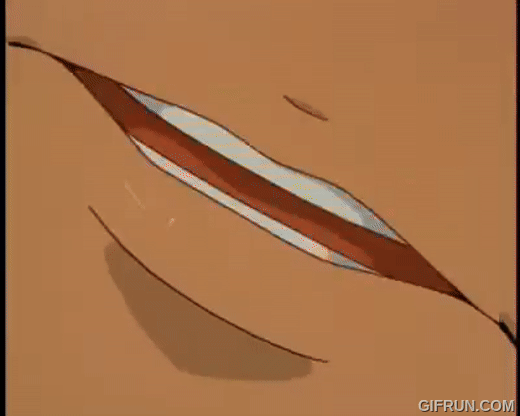
SEL was originally created by aBe to appeal to both Western and Eastern audiences, but for Western and Eastern fans to have very different views on it. It was kind of meant as an attempt to show how different West and East (specifically America and Japan) are, but I think it kind of backfired for the exact same reason it succeeded at the same time. Contradictory, I know, but stay with me here.
Lain has many connections across the series: some personal, but the vast, vast, vast, vast majority are impersonal. They're connections that exist, but that she doesn't necessarily feel connected to; they're the billions of people in and connecting with the Wired, which thanks to Protocol 7 has implanted itself in the subconscious mind of humanity as a whole. These connections aren't as important to Lain as her personal connections are; or, to expand on that a bit, the connections she wants to have.
Alice is a key example of this, and I think that she's Lain's most important relationship: Lain loves Alice from the bottom of her heart. It's a very deep and very important love for Lain; it's the only thing that could've realistically broken her from Masami's control, and we see it happen. Likewise, Alice loves Lain; if not loves, then at least has incredibly deep, caring, and complex feelings for her. Throughout the entire series, Alice is the only person we see actually care for Lain Iwakura: not Lain of the Wired, or Lain-as-God, or "Lain". Even her own father kind of kind of haphazardly dismisses her, her mother downright hates her, and Mika couldn't care less about her. Taro is interested in Lain, primarily for the Lain of the Wired as well as his role as a servant of the Knights, but I can't say he actually cares about her. Alice's friends more or less hang out with Lain because Alice does. Masami doesn't care about Lain in the same way that Alice does; his "care" is incredibly selfish, incredibly toxic, and incredibly abusive.
(TL;DR: they're lesbians, your honor)
At the same time, though, is the connection that Lain has with the rest of the world not important? In that vein, not potentially more important? We can comprehend Dunbar's Number: we can maintain social relationships with about 150 people. We can't comprehend the millions of people we connect with every day; we watch the same videos, we look at the same images, read the same books, watch/read the same news, laugh at the same jokes, play the same games, and so on. Even since the beginning of widespread international... well, connection after the Agricultural Revolution, humanity has been interconnected in some way or form.
It's not a direct connection. I know jack shit about any random 30 year old living in Jakarta or a 13 year old living in Tehran, aside from the fact that they live in Indonesia and Iran. But it's still a connection: it's a connection across time, across borders, across nations. When I'm reading, say, Marx, I'm reading the same books that people in the 1800s read; that inspired Lenin, Stalin, Mao, Luxemburg, Foster, and others (some of whom weren't even socialists, like Ataturk or Mussolini); that changed western philosophy in the last two centuries. I'm connecting with the millions, if not billions of people who have also read Marx; be they from 1856, 1917, or 2024. When I watch a video with 30 million views, I'm connecting with 30 million people; it's an indirect and impersonal connection, but we're all connected through watching that video.
The internet connects billions of people simply by its very existence. When you log into an internet connection, you are connecting to 5.35 billion other people. SEL understands that. Everybody in SEL is connected to the Wired; not just through hooking into it, but through Protocol 7 connecting all of humanity subconsciously, as well. Lain herself is the amalgam of that; she is not just a product of the Wired, or the God of the Wired, or God at all: she is the output, the child of that connection. In a sense, the connection itself.
That's what "Let's all love Lain!" really means, I think. It's a meme; an idea spreading from person to person in a culture. Or, contrary to what aBe might've expected, multiple cultures. It took over MAL about a year back, and it's become popular in both Japan and the States. "Let's all love Lain!" is the ultimate meme in SEL; it is the connection point, ultimately what connects everybody together in the end; their connection to the Wired, their love for Lain, their link to all other 8 billion people in the world.
"Protocol 7 is expected to allow the seamless transfer of information between the Wired and the real world." The message immediately after that?

15 notes
·
View notes
Note
Agree about the fan thing, I have to admit that I am very annoyed that people do not intellectually engage with the game and just meme-ify it and draw ship art because that's seemingly the way western young adults engage with everything. I'd love to see more historical and ideological parallels and real-life concepts applied to the game. Its breakdown of fate and the restrictions of video games is still better than most "meta" games made today because it actually has something to say for itself and its world rather than relying on a shock value ending. Please do talk about the endings and their implications or characters if you'd like. Also, have you played or considered playing The Void i.e. Turgor? It's another IPL game, even more difficult than Pathologic and absolutely loaded with subtext and philosophy that never gets discussed because it flew under most people's radars.
I've not played Turgor, I ought to get on it once I have time.
And yes, while the explosive popularity it has achieved in recent years has lead to a few analytical skimmings I've never seen as much as a video essay get into interpreting the subtext and worldbuilding. What's much overlooked is that the characters and their fates are the way they are because of the way the world is - and vice versa. The Town is an anachronous construct, lost in history much like the wider eastern block at the time. It's failing to reconcile its past and future, both industrial, colonial, and entangled in a parochial social contract, both mystical and demystified, trapped in an indeterminate past. This is exemplified by the visuals of the world, the reactionary and revolutionary relations between the three groups of the bound.
In short, the social and political landscape of the town is the Russian Empire - an industrialized colonial hellscape of serfdom - but it is also the Soviet Union - a visionary state that sought to turn the former into a coherent, progressive reality, but remained bent and dwindled into, well, you know. The town is subdivided into triptychs, the triptych of chronology, the fractions of the bound and ideologically opposed doctors, and of the town itself. There's a healer for every side, trying to save this disjointed slice of the world, but in the end, it's completely out of our control.
This may come across as a very unorthodox interpretation, but the *true* ending, the revelation that the town was but a game and the efforts and ideological struggle between the healers meaningless is part of a wider political and philosophical critique everyone seems to overlook. It's a criticism of a parochial, inward and in-group focused society that is afraid of death, personal death and the death of narratives.
You see this a lot in the approach to religion and conservatism in this social sphere (a remote town in east europe, for one). The people have no faith in God, but zealously upholds religion to preserve social norms. The people avoid tragedy, any attempt at a deeper insight is mocked, "philosophizing" is frowned upon, the in-group must remain static and timeless in a chaotic world to avert the fear of revelations, of death. A narrative must be upheld.
The town is a closed circle, and the world outside is heard of only in whispers and chatter.
The ending is your first meeting with the real agents of the outside world, The Powers That Be. You find out this closed circle was a sham. It's not a shock-twist, it's mocking the player, the town, the townspeople for believing their bubble mattered, for deluding themselves into intrigue and self-importance trying to avoid the human condition and unpredictable nature of the world - for trying to adhere to a single narrative.
This could be phrased much, much, much better. I'm tired after work though.
9 notes
·
View notes
Text
The America article above celebrates the veneration of St. Thomas Aquinas’ skull and relics that came to Washington DC on November 29. In it Father James Brent, assistant professor of philosophy at the Dominican House of Studies, said “an exceptional way” to gain wisdom and understanding “is to pray for it in the presence of the skull of St. Thomas Aquinas.” Fr. Gregory Pine, OP offered this quote for the event at St. Dominic’s church which included a Mass, veneration, and solemn prayer:
In a time of renewed interest in the teaching of St. Thomas Aquinas, the jubilees of his canonization (700 years in 2023), death (750 years in 2024), and birth (800 years in 2025) draw our attention to the masterwork of wisdom and sanctity which God wrought in him. The opportunity that we have to receive and venerate his relics makes this grace all the more proximate and precious to us.
I went to the 12:15pm mass at St. Dominic’s church where Archbishop Wilton Gregory presided and preached at. The gospel reading from John was where Jesus invites his disciples to recognize the love that God has for them through his own witness and invites them to ask for gifts from him. The archbishop preached on the practice of venerating relics and how Aquinas’ relic is a great spiritual gift for us and draws us closer to God and the wisdom and knowledge of God.
The veneration itself was a powerful act of spiritual devotion where many people prayed for personal and social intercessions from this great saint. For my part I prayed for the personal gifts of wisdom, knowledge, justice, and charity. In our society I prayed for our nation and especially for our immigrant community. I asked also for the wisdom and courage for us who are willing to transform our broken political system.


Here is the prayer that was passed out during the veneration.
O God, who poured forth the waters of wisdom upon your Church through the teachings of Saint Thomas Aquinas, grant us, through the veneration of his relics, an increase share in that same holy wisdom and divine charity that inflamed it. Through our Lord Jesus Christ, your Son, who lives and reigns with you in the unity of the Holy Spirit, God, for ever and ever. Amen.
Blending Aristotelian philosophy with Scripture and Patristic theology St. Thomas developed a form of natural theology - the belief that people can experience God’s existence through reason and experience, rather than any special revelation - which made his concepts very accessible to all people. Thomas helped further develop the idea of natural law and rights which would have such a profound impact on western civilization. His contributions also included the notion of how we can come to understand God and the purpose of our existence, how the virtues inform who we are and how society can be organized towards the ideals of justice and charity. We are indebted to him for the philosophical underpinnings of our society.
The Dominicans have established this amazing way of learning about Thomistic theology and spirituality called Aquinas 101. It is a great site with videos on all things Thomistic.
youtube
As i share this focus on the great saint and theologian I also want to share on the mysterious end of his extensive writing. This has troubled me for some time now. The following article shares some insights on the interesting event.
It is troubling to think of what happened on December 6, 1273 when he stopped writing after going to Mass that day. Many assume that he suffered a stroke that left him incapable of finishing his masterpiece. As the author of the above article tells us:
For his part, Thomas’s explanation of the silence was not physiological but spiritual. As often happened, he entered an ecstasy during Mass. Earlier in the year, on Passion Sunday, while he was celebrating Mass before many witnesses, the experience lasted so long that brothers had to intervene so that Mass could be finished. On this day, the feast of St. Nicholas, Thomas celebrated Mass as usual in the chapel of St. Nicholas in San Domenico Church in Naples. When Thomas’s friend and secretary Reginald brought him back to his senses, he was transformed.
The natural explanation would be that something happened to incapacitate his continued writing, a stroke perhaps. But it is curious to discover that St. Thomas Aquinas communicated this event as a spiritual experience that ended his writing career. It does offer the possibility that in experiencing the diving itself one may be left bereft of expressing this. As his attempt was to create a definitive theological summery he felt that mystery itself cannot have a conclusion thus leaving it open for others to expand on or delve into.
Even so, what he has left western civilization is an amazing work which has been the basis of ongoing work for theologians/philosophers/social scientist.


2 notes
·
View notes
Text
youtube
This is it, after many years of mixing toons with tunes. It has finally come to this. As I’ve stated in my last video, this will be my final Cramp Twins video.
I always thought that if I ever stopped making these videos, I would close out with a very special kind of project, one that hasn't been done before. I’ve always wanted to push the boundaries of what can be achieved in the field of AMVs. After all, there’s somewhat an art to making them. Considering I made AMVs with songs that never had an official video, why not make one with a b-side? (One of those songs musicians include in addition to a single).
This time around, Soap City is in its darkest hour. It’s up to Wayne, Lucien and Tony to protect the swampland. Despite their efforts, it continues to be consumed by toxicity. Things can never be the same. But when it seems all hope is lost, will they ever find finality to their story?
Now this is one of my more plot driven videos, in which I would put certain scenes and parts together to form a story of its own. With this, I wanted to take it in an epic direction. I figured that my final AMV should be my grandest. Keeping with the theme of the song, I would incorporate these filters to evoke the look and feel of a martial arts film, As to homage eastern philosophy and lore as inspiration. I also wanted to show how much of our modern media has taken aspects from older stories and legends to form new ones. Which isn’t any different from what AMVs are. I’ve always set out to make more ambitious videos, and this was no exception. In my years of making videos, I can say that this is one of my biggest accomplishments (in terms of cartoon videos that is) and I’m proud of how it turned out.
When I had the idea for this AMV, I knew it would be my swan song (so to speak). I wanted to finish off on a high note, to achieve what I set out to do. And I hope the same will happen for the show itself. Because when I say that The Cramp Twins needs to have a proper conclusion, I mean it! You may have noticed I’ve been campaigning for this revival to come to fruition, yet it seems my suggestion has fallen on deaf ears. In an age where these entertainment companies are relying on nostalgia and old properties, I don’t see why these troublesome, technicoloured twins should be the exception. I realise I may be in the minority who like this show, but I think there’s so much good about it that deserves more than its given credit for. Not liking Cramp Twins is fine, but condemning people who have the opposite opinion or worked on it is not. Even if you don’t like the TV series, surely you would sympathise with fans who want to see a conclusion; considering the makers pulled a ‘Hail Mary’. I’m not ashamed to say that I stand by it, I see the best that it could be.
Personally, this was a series that really spoke to me, yet no one else remembers it. We all had that kind of series as children. Whether it be this or 'Snailsbury Tales'. I don't know, I'm sure somebody watched that!
No matter what some self-entitled people say, I’ll never stop adoring Wayne and Lucien’s ecological escapades. As long as the fans stick together, we can make a difference. As long as we never give up on demanding for that ending the show deserves, then maybe we’ll have closure. And maybe, creator Brian Wood will return in some form. This show will always have a place in my heart, and that making these videos got me much exposure. I also mean it when I said I had a wonderful experience making them. I thank you for sticking by me and my work, but now I must move onto bigger pastures. For a wise man once said, he who moves a mountain, begins by lifting smaller stones. So to all my friends, supporters and watchers, I say thank you, merci, gracias, obrigado, arigatō, xièxiè, gamsahabnida, danke, grazie, sas efcharistó and spasibo.
Cramp Twins belongs to it's respected owners and creators.
#cramp twins#the cramp twins#amv#cmv#music video#Soap City#Wayne#Lucien#cartoon#animated show#tv series#finale#swamp#dystopia#pollution#peace#message#proper conclusion#bringbackthecramptwins
2 notes
·
View notes
Text

Calico👹🔗😸🔪 Yeah uh, this took WAY too long to design, in fact it took a week or so only to plan out that short backstory I wrote for him and decide on certain design details.
One important fact about him: remember my last character from the last post? Wasit? I said Wasit found a video going around of an ass@ ssination of a middle eastern group of politicians…? Well yeah, this is who did it unfortunately!
Calico’s philosophy is very hard to define at least for now when i only have core ideas about his character but he is more of a loner and his principles are based on his safety and keeping the system going only if its a benefit for him.
Despite it all, he does have a few morals but he’s not quite reedemable either. He was raised in an abusive environment from a young age in a mormon family then later on completely gave up on his initial beliefs in God. After doing his 2 years of misionary work he joined the us marines or navy (haven’t decited yet) then did in his later life served in the special forces, and eventually opened his iwn pmc by the time of his activity in iraq.
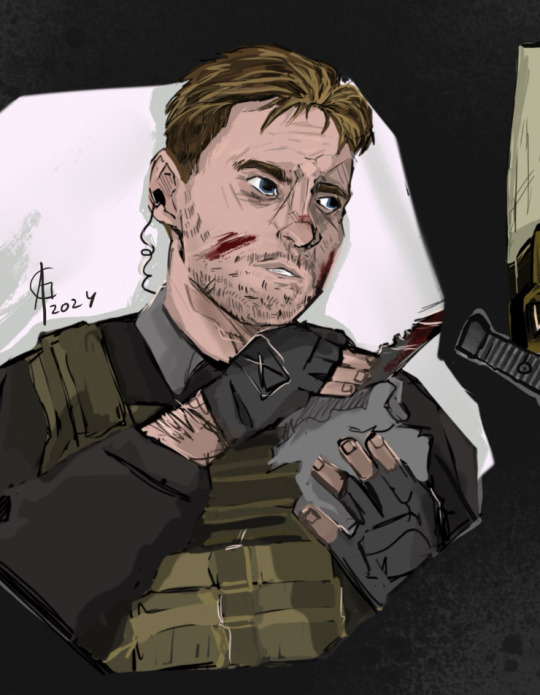


#art#digital art#my art#digital illustration#artwork#ocs#military ocs#milsim#mercenary#mercenaries#mercenary oc#original characters
6 notes
·
View notes
Text
Why do we Love...
Pattie Boyd
Pattie Boyd came into our life during our teen years, my sis and me always loved The Beatles and we knew first about Yoko and Linda, and some time later about Cynthia. We found Cyn very beautiful and lovely and we start collecting photos of her from a Southamerican website. At this website there were photos of all the Beatlegirls and then I came across Pattie, I found her very beautiful, young and fresh looking girl, but as my favourite Beatle was John, I had to stick with Cynthia, until I saw The Beatles Something video...
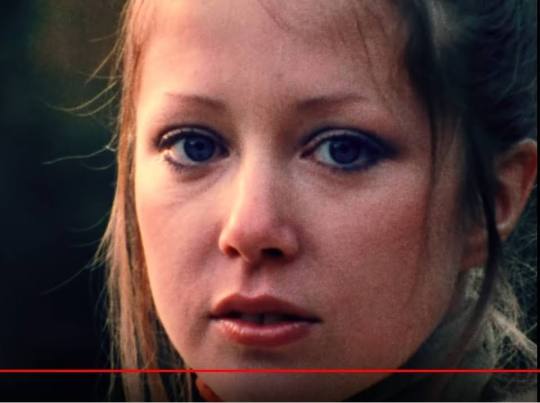
[Pattie Boyd in Something video, 1969]
I remember it well, I was with my sis for a New Year's Day lunch in a friends home and this video came across TV as The Beatles 1 was just launched, and I fell in love with that beautiful young blonde woman on TV. That day I decided I would search for her over the internet and see what I could find.
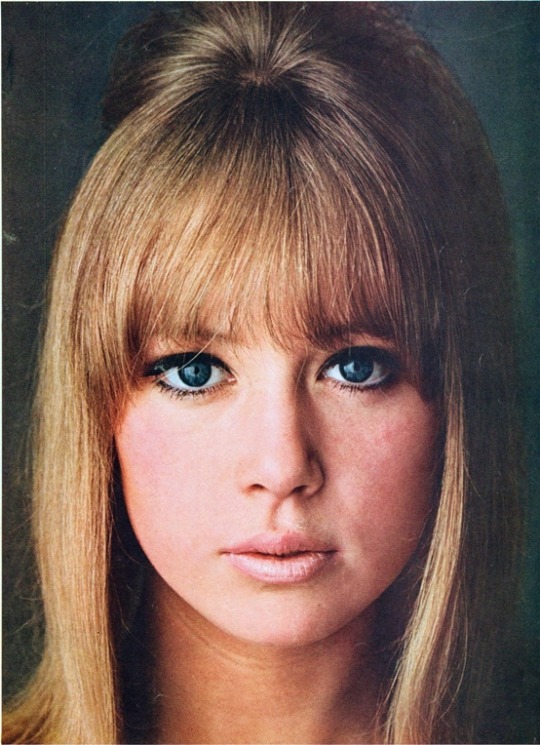
[Pattie Boyd pictured by Barry Lategan, 1964]
At home we start searching for Pattie and we found, besides this Southamerican great site, lots of other sites like "It's Only Love", "Pretty Blue Eyes" and "Dollyrocker". Thanks to these sites we saw that Pattie was a successful model in the 60s, she had a great style and she looked beautiful and funny. In these sites there was always a "very special thanks" feature and there was always a girl called Lynn mentioned there and my sis ans me were just curious, and in one of these sites there were the Yahoo Groups linked so we thought that it could be great to join them, but we weren't sure because we need to had a yahoo mail and we didn't have one back then...

[Pattie Boyd pictured for UK Vogue magazine, 1st October 1970]
When finally my sis and me had our yahoo mails, we joined the yahoo groups for the beatlegirls, there were lots of them, but in the end we just stayed at the ones that provided best information, best pictures and there was no spam. In those groups we met lots of interesting people who collect photos, we shared them and it was great fun.
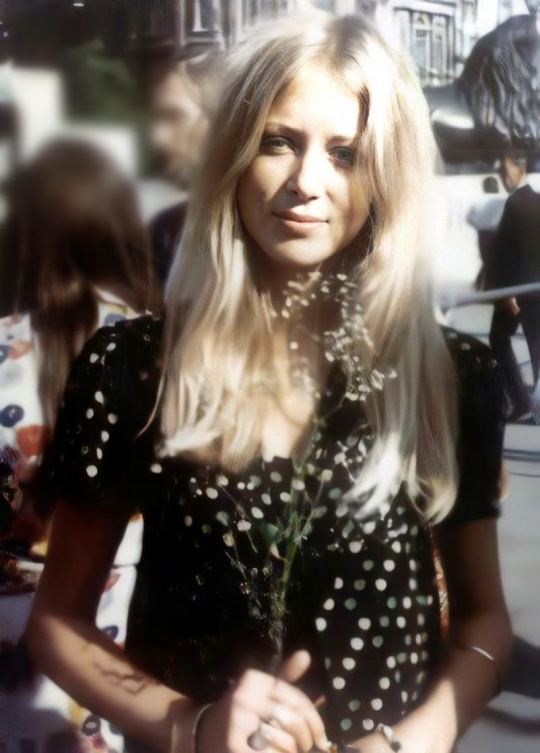
[Pattie Boyd pictured in Trafalgar Square the 27th July 1969 for a March for Peace]
As we were in these groups, we started collecting more and more pics that we kept in floppy discs (do you remember them?) and our dream was to build a great website for them, so we started using the picso platform and we were quite satisfyed, then we moved our collection to webs, and finally to facebook. We bought lots of magazines (overall Vogue from 1969 as it was my favourite Pattie era) and we wanted to share them without tags and with great quality scans as everybody deserved to see the greatest quality pic of their idols.

[Pattie Boyd at the peak of her modelling carrer having 4 Vogue covers in 1969!]
Yahoo groups were shut down and I had a facebook page for Pattie, Jenny and Paula that had lots of likes, comments, shares... it was a real success, so big that I had to close it down because I couldn't manage, it was sad for me because Pattie was my favourite beatlegirl and I wanted to have a proper site for her, but then they came facebook groups with great collections so I just joined them having in mind to share my great collection of scans and screencaps, a thing I still have to do...

[Pattie Boyd for UK Vogue, 15th April 1969]
As we were saving, sharing and making our site for Pattie and her sisters, we discovered she was more than just a muse, she was behind Something, but also from some other Beatles song; she was a model and did some acting, she didn't gave up her modelling carrer as her husband wanted her to do; she discovered Eastern philosophy by 1967 and she encouraged George Harrison and the rest of the Beatles to follow... George Harrison is aknowledged to have brought Eastern music to pop music, this has been a cultural revolution in the 60s and it's great four young musicians wer part of it, but it happened thanks to Pattie, and I would like that everybody aknowledges her for that, as this was a great change in the 20th century and she was in the middle of it, and sometimes she is refered just as "THE muse" of two great rock icons, but she was more than that.

[Pattie Boyd in Bangor, Wales, August 1967]
Today, on Pattie's 79th birthday we want to remember her for what we like and admire her.
Here we share:
OUR BIOGRAPHY FOR HER WITH LINKS TO GREAT SITES
HER POSTS IN OUR BLOG
HAPPY BIRTHDAY SWEET DOLLYROCKER!!
#Why do we love#happy birthday#happy bday#Pattie Boyd#happy birthday!#happy bday!#model#muse#tv actress#fashion designer#boutique owner#photographer#author#writer#beatlegirl#60s model#60s fashion
27 notes
·
View notes
Text
What motivated me to make my post that explains Krillin's power up in DBS EP 76 was how nobody with a big name in the fandom took the effort to dive deep into it. But the key motivation was an interaction I had with Kendamu on Twitter back in 2020.
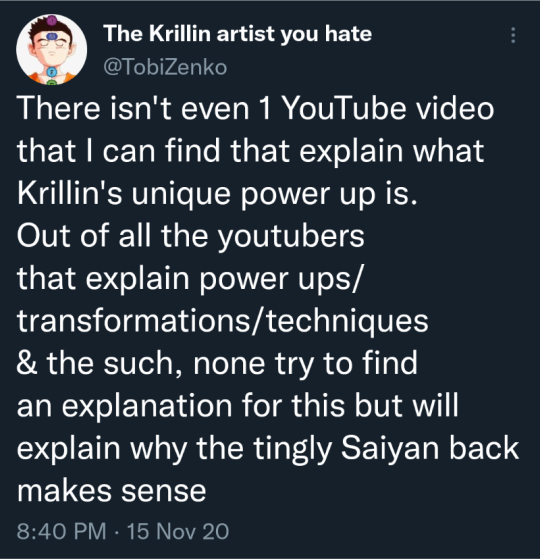
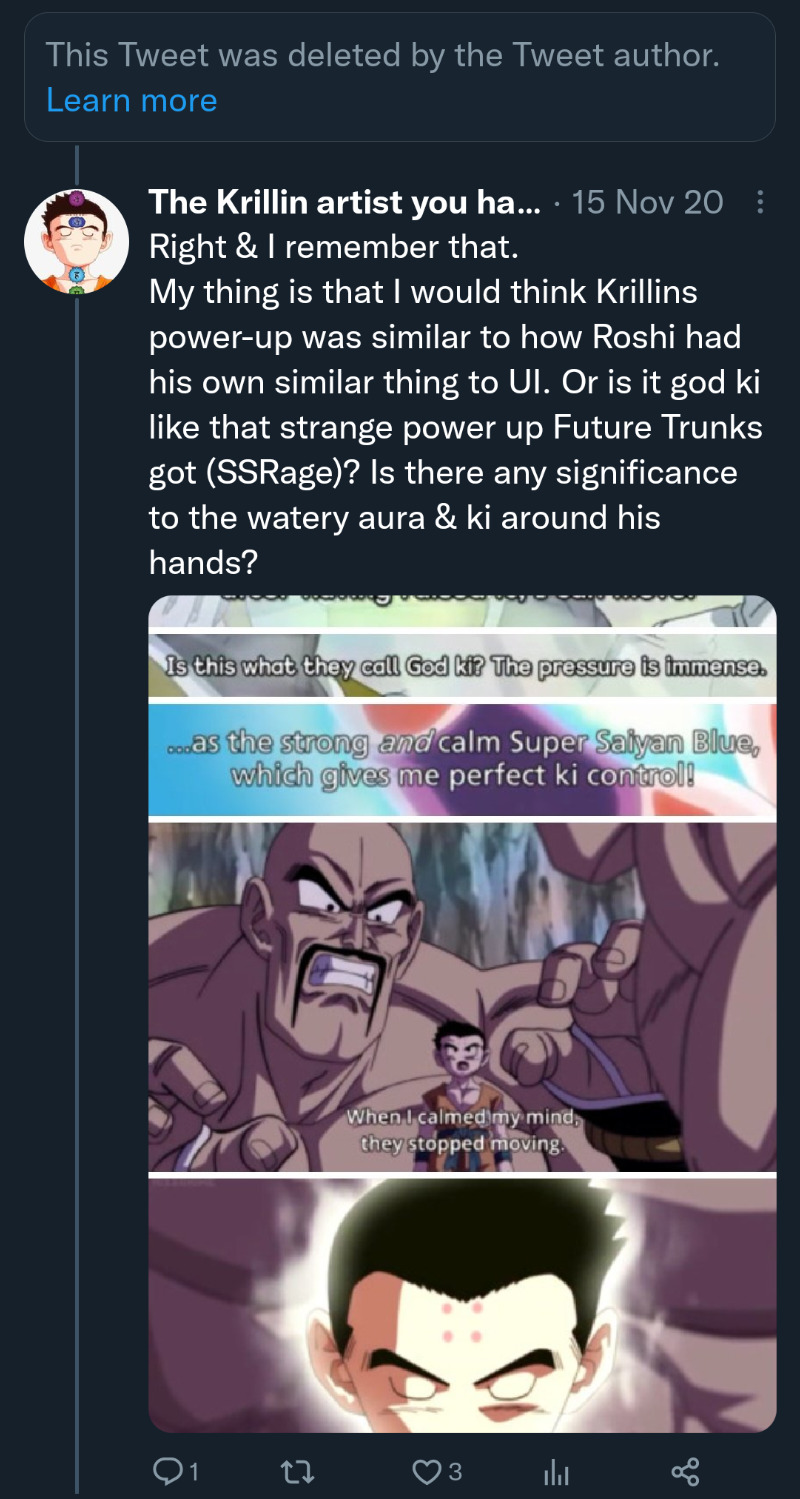
The response is deleted now, but the answer was something along the lines that they believed it was simply a reference to the Namekian Grand Elder unlocking Krillin's power and thats it. They said it was nothing significant about it. As most peopl have said & still say.
With Kendamu having knowledge of Eastern philosophies & martial arts, I thought they would give a more deeper answer. But, it just goes to show that not a lot of research is done for human characters even by the most knowledgeable people. Most in the fandom would rather focus soley on the Saiyans & often end up dismissing the human characters and don't do any research on them.
And that's not to make Kendamu look bad in any way. They just didn't have any interest information about Krillin. Which is why I spent half a year studying Buddhism and did other research before I made my post about Krillin's Non-Self State power. And I have continued to do more research to this day, occasionally updating the post where needed.
I still haven't seen 1 YouTube video that explains Krillin's power-up in detail.
I was hoping maybe MasakoX would do a color theory video about, but he doesn't do those kinds of videos anymore. Those were my favorite kinds of videos he made. He mainly does what-ifs and Raditz stuff now.
The other who I hoped would do an in-depth video about it was Geekdom101. Maybe in a Transformation Guide (since Non-Self State is a spiritual transformation) or a Technique Guide (since Non-Self State requires a specific kind of mindset similar to Ultra Instinct). But, I doubt he will make a video about Krillin's power soon or ever. Those guides are mainly filled with physical transformations from Saiyans and other aliens or mainly techniques from Saiyans.
So... the most in-depth content about Krillin's power-up so far is from me lol. 😅 Too bad my reach & influence isn't very far. 😓
#Non-Self State#Krillin#No Ego Zone#Selflessness State#DB fandom#DB#DBZ#DBS#Dragon Ball#Dragon Ball Z#Dragon Ball Super
24 notes
·
View notes
Note
may i suggest you IEUqLL8J4gI on youtube? spoiler: it's not actually about killing gods in jrpgs
I don't love video essays because of how they tend to conflate, oversimplify, and often misstate or misrepresent information. They also tend to be poorly organized/structured. I think this video falls into similar issues, and its framing of Japan is infantilizing and orientalist at times.
Your summary is a good example of why it's not well constructed— the essay should, actually, be about killing gods in jrpgs. Context isn't supposed to distract from the thesis; it's supposed to support and provide an analytical lens. Nothing exists in a vacuum (not even American video game tropes, despite what the intro implied, or even the outro with its overextension of classical theology). But I think the creator misses background context relevant to the point, overattributes to the West (and in doing so, strips substantial autonomy, sovereignty, and culpability from Japan), and conflates Eastern philosophies and religions (and attempts to compare both to the West without considering comparably influential Western philosophy at all). The essay also suffers from a common issue in media analyses online in that the essay contains very little actual analysis (the analysis doesn't begin until after 1 hour into a 1.5 hour video— and is very rushed with only thin connections made to only some of the background information).
But, I do appreciate the recommendation, and it was definitely interesting. I can only be critical because of the sheer amount of background I've inhaled and because I don't think I'm necessarily the target audience. I also struggle to critique anything unless there's something substantial enough to latch onto, and so, as far as I'm concerned, the fact I have specific criticisms at all speaks well of the recommendation.
#im stupidly picky and that's no one's burden but my own#i'm also in a research and analytical writing-heavy job that requires a terminal degree#so i have a remarkably unfair baseline expectation/standard for analyses#whereas the vast majority of things are great for what theyre tailored to be#but anyway.#i would say self effacingly that as you can imagine im not great at parties#but in undergrad we would have parties in which we made drinking games out of political and philosophical debate#and as an adult all of the parties i go to are full of like lawyers and programmers and shit so like#i actually do kill it at parties— but specifically parties for people who are poorly socialized so
5 notes
·
View notes
Note
Hey, just saw your post about Egal the Bard or whatever his name is having inaccurate instruments and making inaccurate music. Your info was very helpful about the instruments, but could you please speak more to why it's musically inaccurate? Or maybe, do you have video examples of what traditional medieval ensemble music sounds like?
Thank you for asking! I run this blog to share things with the intellectually curious.
The misrepresentation of historical music is my pet peeve. I was not kind to this burnout bard, this short-shift schop, this miniature Minnesinger, because he is making the work of medievalists harder. I don't care if someone wants to play bard, but they shouldn't advertise their modern pop stylings as having been informed by the sonic architecture of the middle ages.
Here's the lowdown on medieval European instrumental music:
A lot of it came from North Africa and the Middle East. The Maghrebi Arab-Berbers, whom the Europeans called the Moors, conquered Andalusia and added it to the Umayyad Empire, which was huge and was comprised of Arabs, Persians, Turks, formerly-Byzantine Christians, and Jews. They brought instruments like the lute and shawm with them, and these instruments subsequently spread across Europe. The Moors brought a lot of culture to Europe in general: Córdoba became the European center of learning, especially in math, astronomy, medicine, and philosophy. The three Abrahamic faiths coexisted peacefully (well, after the invasion, and until the Christian Reconquista and subsequent expulsion of the Jews). Arabic, Persian, and Syriac cultures had also preserved classical Greek writings, and as Europeans returned from their various Crusades, they brought this knowledge with them. Aristotle inspired the monastic, literate intellectual life of medieval Europe, and Plato, via Arabic transmission, later inspired the Italian Renaissance.
We don't know how medieval instrumental music sounded, as we have no recordings and very few surviving instruments, and because most of the music and music theory that was written down was sacred a capella music recorded by literate monks and nuns. Secular instrumental music was seen as a baser art, although that was the opinion of the monastic intellectuals, whose perspective is the only one that survives in writ. History is written by the ruling classes.
We can gather clues by looking at medieval depictions of instrumentalists. Illustrations are often simple and stylized, and historicist luthiers' recreations based solely on iconography tend to be cartoony and rough (like anime cosplay!). They should be relegated to theatre props. However, iconographic evidence may be augmented with the study of surviving "folk" music traditions (pardon the classist label. All music is folk music because all music is made by folks!). Some European folk instruments are very old and have evidently changed very little over the centuries, and many of their Middle Eastern and North African progenitors are still played, and the artistry of the great instruments like the oud (lute) and qanoun (psaltery) has been cultivated to greater depths than were ever reached in Europe, because their roots are so much older. The European genius is just as brilliant, but fickle: it often discards its old tools for new ones. For instance, the barbat, the Central Asian/Greater Iranian lute, has been played since ancient Mesopotamian times, and its descendents are more popular today than ever before.
Unfortunately, the Anglophone medieval European academic scene is still overcoming its inherited Eurocentrism, and Arabic scholarship is largely inaccessible to us due to language barriers. I'm sure everything is thoroughly documented and annotated in Arabic scholarship...
If we want to imagine what medieval Al'Andalus sounded like, our best bet is to listen to traditional Andalusian ensembles. The Arab-Andalusian Orchestra of Fez is over a century old - the oldest Andalusian ensemble that is still active - and its repertoire goes back to the middle ages:
youtube
Note the melodic intervals sound European, not Arabic. The ensemble prides itself on this. European tuning theory has changed subtly over the centuries, but from its earliest Greek roots it is still recognizable to the modern western ear. Traditional Andalusi music is similarly familiar, though Arabic, Persian, and Turkish music sound microtonally exotic to unaccustomed ears.
We have a treasure, a 13th century Galician illuminated songbook from the court of Alfonso X, el Sabio, of Castile. It's called the Cantigas de Santa Maria and it is full of sacred and pseudo-sacred Marian poems with notated melodies and illustrations of musicians.
Here are scenes from the musical life of Alfonso's court:





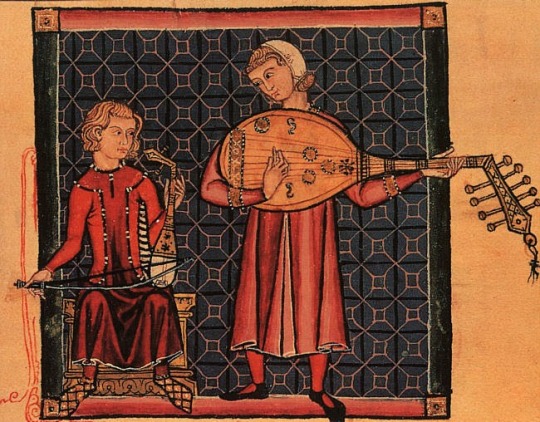


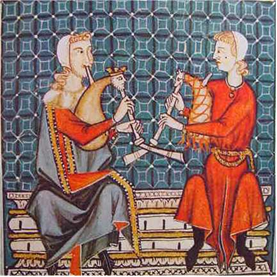

Here is a leading European early music ensemble's imagining of how it MAY HAVE sounded:
youtube
Here is another glimpse of the past, the painted ceiling of the Capella Palatina of Palermo, Sicily, Fatimid in style, from the 12th century. There are a lot of images of musicians on the six pages of this website.
In short, one mustn't take recordings of recreations of medieval music as gospel. Musicologists, music historians, and historical performers like myself do as best to be as authentic as we can, but the further we look back in history, the more we must engage in creative guesswork. It can be seen as artistic collaboration across time.
"The past is a foreign country."
- L.P. Hartley
13 notes
·
View notes